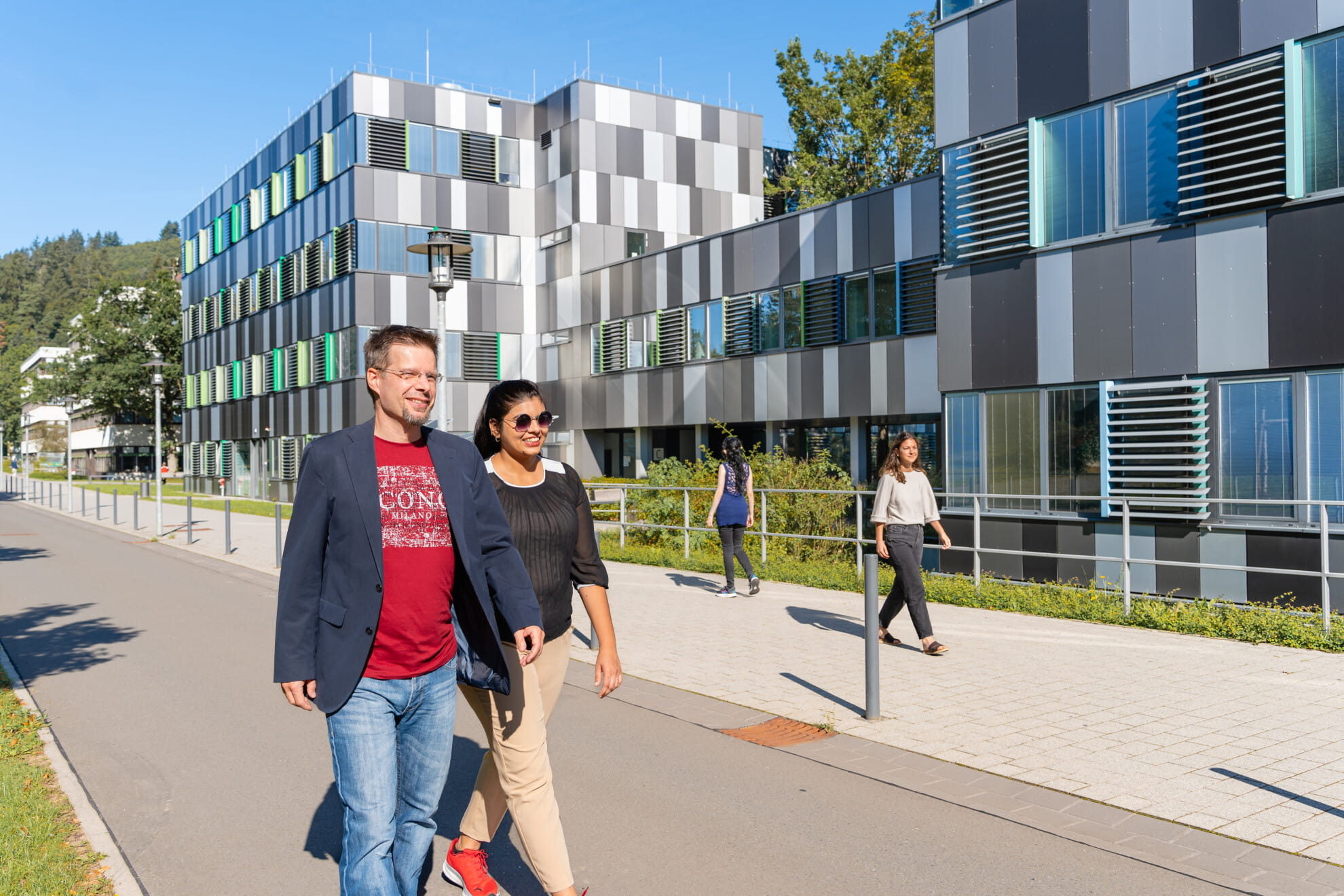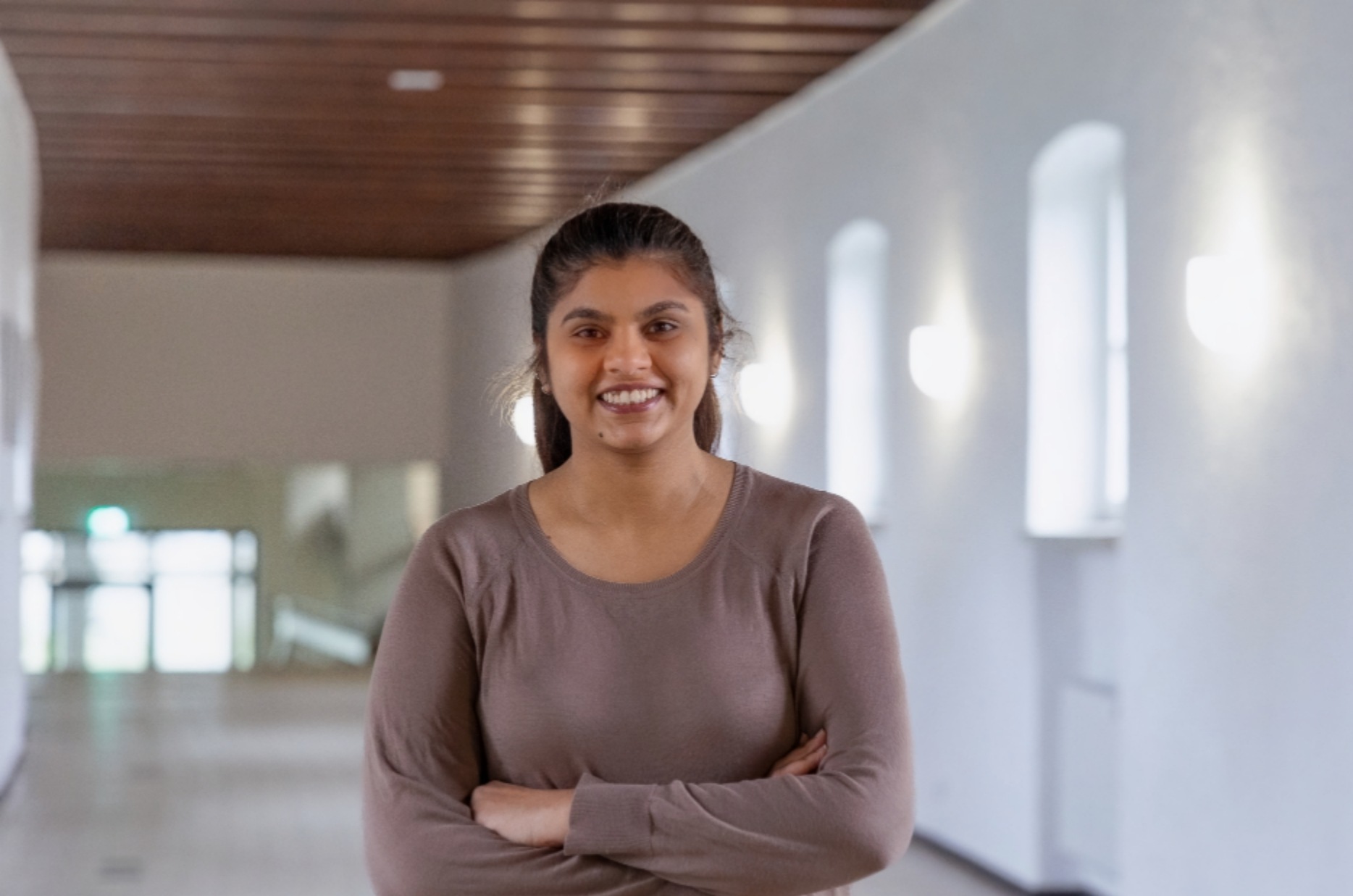Career
While young academics jostle for the few positions at classic universities, the career paths at UASs are often less well known. But they open up great opportunities, especially for those with work experience who, after earning their doctorate, started off in business or society but now want to come back to higher education.
In an interview with a young scientist from India, the Trier University of Applied Sciences showcases the opportunities that universities of applied sciences offer at different career levels and how international research is also promoted.
RESEARCH WITHOUT BORDERS: CAREER OPPORTUNITIES IN SCIENCE
International research often has its origins at large research institutions, but universities of applied sciences also make remarkable contributions. At the Trier University of Applied Sciences, the commitment of Dr. Anuprita Kanitkar, who came from India for a six-month International Researchers' Sabbatical to advance her research on computer game-based rehabilitation, is a prime example of this. In our conversation, she explains how the exchange with the Trier University of Applied Sciences enriches her work and what career prospects it opens up for her.
What motivated you to pursue a career in research?
Early in my academic career, I developed a passion for health sciences and rehabilitation. The desire to make a significant contribution to improving therapeutic approaches through research motivated me to pursue a career in this field. The opportunity to develop innovative solutions and to see their direct impact on people's lives absolutely reinforced my decision.
What motivated you to take a sabbatical at the Trier University of Applied Sciences?
Originally from India, I obtained my master's and doctorate in therapeutic sciences at the University of Manitoba in Canada, where I also worked as a postdoc. During this time, I worked with my supervisor, Tony Szturm, to establish international research collaborations. Our involvement led to participation in a conference where I met Prof. Dr. Sven Karstens. As a result, I was offered an international research sabbatical at the Trier University of Applied Sciences.
The opportunity to work in a new cultural and scientific environment was not only a chance in terms of personal development, but also a chance to enrich my research and career through new collaborations and resources.
How did your previous research at the University of Manitoba influence your work here?
My research experiences at the University of Manitoba have given me in-depth insights into the development and application of therapy techniques, particularly in the field of rehabilitation. This expertise provided me with a solid theoretical and practical background for the new research environment at the Trier University of Applied Sciences. The methodological approaches and scientific foundations that I acquired there are the basis for my work today and allow me to work on and adapt complex research questions in an international context.
How do the healthcare systems in Canada, Germany and India differ from your perspective?
The healthcare systems in Canada and Germany provide comprehensive and well-structured care that is widely accessible to the population. Canada has a universal healthcare system, but there are restrictions on the coverage of certain therapeutic services, which often have to be supplemented by private insurance. In Germany, medical care is also extensive, but physiotherapists here often work under medical supervision, which limits their autonomy. In India, health services are often limited and not always accessible to all parts of the population. These differences significantly influence the role and practice of physiotherapists and shape the way rehabilitation and therapy are carried out.
That is why international research is crucial to understanding the differences between healthcare systems and developing more effective therapeutic approaches worldwide.
What opportunities did the sabbatical give you?
During my six-month sabbatical, I was not only able to develop a pilot assessment software for patients that can be used in a clinical setting, but I was also able to test the treatment protocol with five Parkinson's patients in an eight-week treatment program. Our study’s goal is to develop software that enables physical therapists to monitor the condition and progress of their patients remotely.
International research has so many benefits for research. It allows us to integrate different scientific perspectives and develop new methods that might not be available in a national context.
How was the collaboration with Prof. Dr. Sven Karstens?
Prof. Dr. Sven Karstens was a fantastic mentor who included me in his courses and allowed me to mentor several students, which truly enriched my experience.
He not only gave me valuable scientific insights and methodological advice, but also provided me with access to new networks and research resources. His support and expertise have made it easier for me to address complex issues in my research and develop innovative approaches.
Working on my research with him during these six months has been incredibly fulfilling, as it is exactly what I want to do in life.
How do you see your future career prospects?
I see my future career prospects in both research and teaching. Trier University of Applied Sciences offers a research-friendly environment with an excellent infrastructure and an open, collaborative atmosphere. These conditions have inspired me to pursue my academic career here.
The university offers innovative employment models that are especially appealing. One example is the tandem professorship, which allows postdoctoral students to gain valuable business experience, an important step toward qualifying for a university professorship. Another promising model is the family professorship, which helps balance research with family responsibilities—an approach I find very forward-thinking.
I am convinced that we need more flexible research positions with adequate funding, and this is exactly what the Trier University of Applied Sciences offers.

The international researcher Anuprita Kanitkar conducted research with Sven Karstens in the field of physiotherapy on game-based rehabilitation as part of an International Researchers’ Sabbatical.



